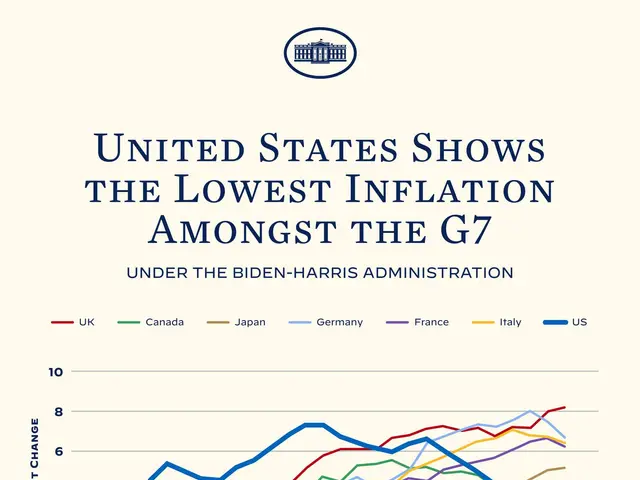- *
Germany Adhering to Climate Policy Out of Economic Vulnerability - Economy struggles in Germany, potentially leading to increased carbon emissions and further contributions to climate change.
Straight up: Germany ain't gonna meet all its 2030 climate targets, says experts. But if it weren't for the economic shitshow, the picture'd look rosier, asserts Hans-Martin Henning, chair of the Climate Issues advisory committee in Berlin.
The Coronavirus and the Struggling Economy: The Saviors of the Budget
"Without that cushion we've been building up, like during Corona and through the struggling economy, a major budget overrun by 2030 would've been a no-brainer," Henning clarified. Germany's Climate Protection Act lays out the amount of greenhouse gases the country can emit each year between 2020 and 2030, forming an emissions budget. Guess what? Experts say we're right on the money!
The Mission to Be Climate-Neutral: A Lofty Dream or a Distant Reality?
Germany plans to hit climate-neutrality by 2045, meaning no more greenhouse gas emissions than what the planet can soak up. But here's the kicker: according to experts, we're gonna miss this target by a mile.
Europe's Climate Goals on the Line
Under European regulations, Germany needs to cut emissions in half by 2030 compared to 2005. Last year, we fell off track to meet this target, calculations by the advisory committee show. The goal for 2030 has even risen compared to the previous year.
The Expert Council Speaks Up
This independent five-member advisory committee assesses the effectiveness of German climate change policies and offers recommendations to politics. Their legal tasks include scrutinizing climate change policies and reporting findings in a recent report, which largely corroborates the figures presented by the Federal Environment Agency in March.
- Germany
- Greenhouse gas
- Climate
- Economy
- Crisis
- Berlin
- Hans-Martin Henning
- Coronavirus
Extra Insights:
- Emissions Reduction: Germany's economic downturn resulted in a significant reduction in greenhouse gas emissions. In 2024, Germany saw a reduction of 649 million tonnes of CO2 equivalents year-on-year compared to the previous year[1].
- Economic Challenges: Though the economic downturn has helped reduce emissions, it's causing job losses, decreased wealth, and reduced tax revenue[1].
- Coronavirus Pandemic Impact: The pandemic built up a "buffer" in reducing emissions due to reduced economic activity during the pandemic years (2021-2024)[1].
- Public Perception: Despite economic challenges, Germans prioritize environmental and climate action, with 54% considering it "very important"[4].
Despite the economic challenges and job losses caused by the downturn, Germany managed to significantly reduce greenhouse gas emissions by 649 million tonnes of CO2 equivalents year-on-year in 2024, thanks in part to the impact of the Coronavirus pandemic on reduced economic activity during the pandemic years (2021-2024). This reduction in emissions, however, does not seemingly assure Germany's ability to meet its 2030 climate targets, according to experts in the independent Expert Council, which assesses the effectiveness of German climate change policies and offers recommendations to politics. The committee's findings largely corroborate those presented by the Federal Environment Agency, indicating a continued need for environmental and climate science in finding solutions to aid climate-change mitigation and potentially the boosting of economic finance through greener policies in Germany's struggle towards reaching its ambitious climate-neutral goal by 2045 and its European regulations for emissions cut targets by 2030.





